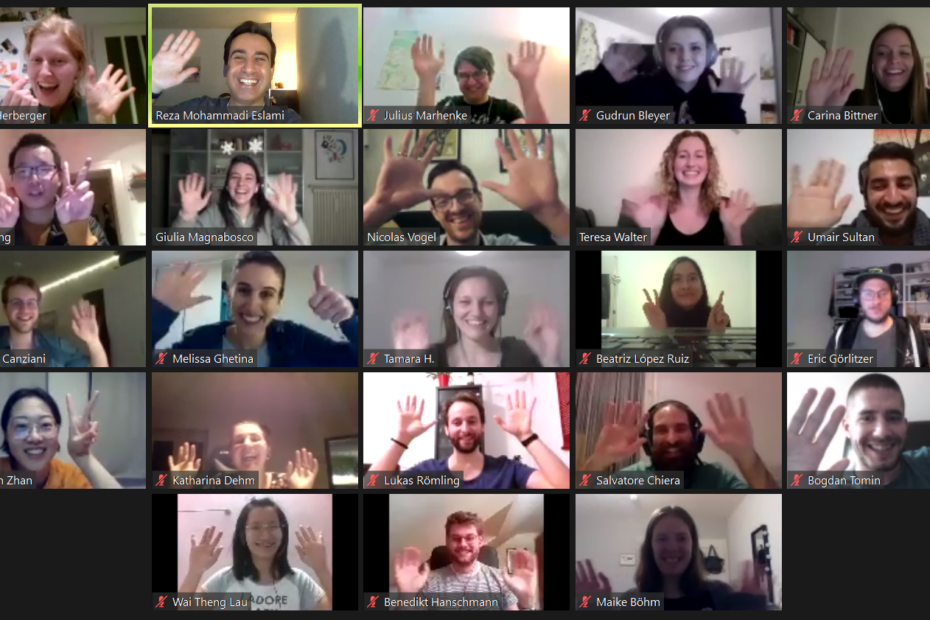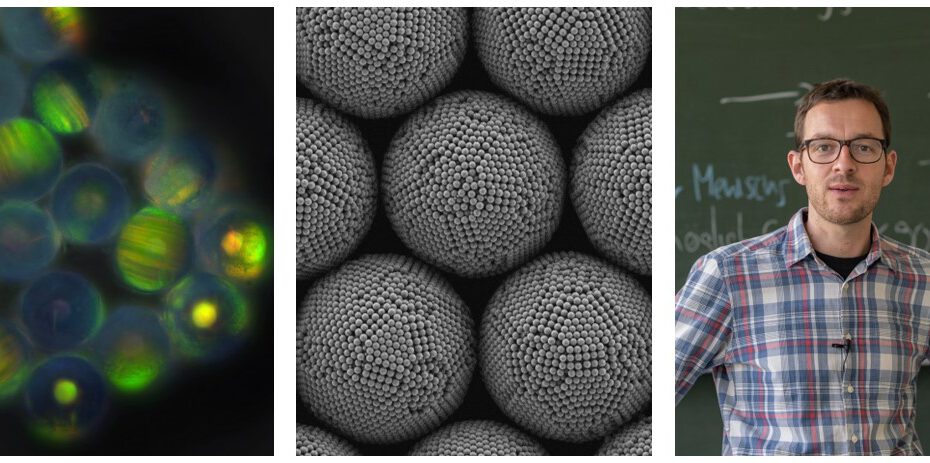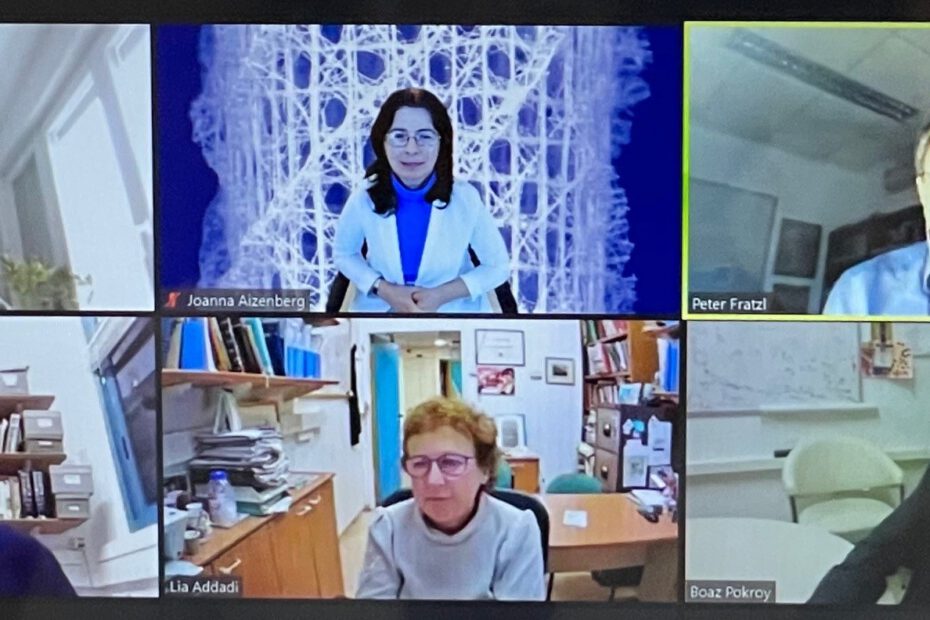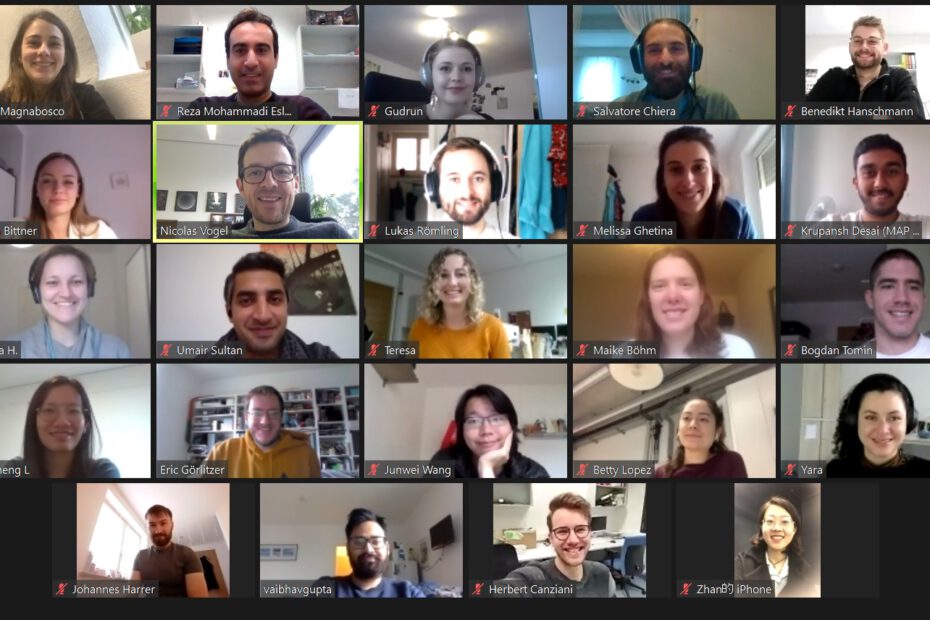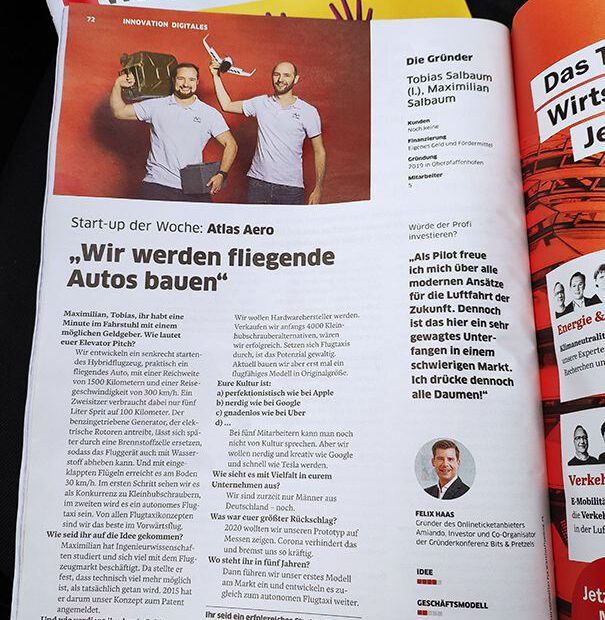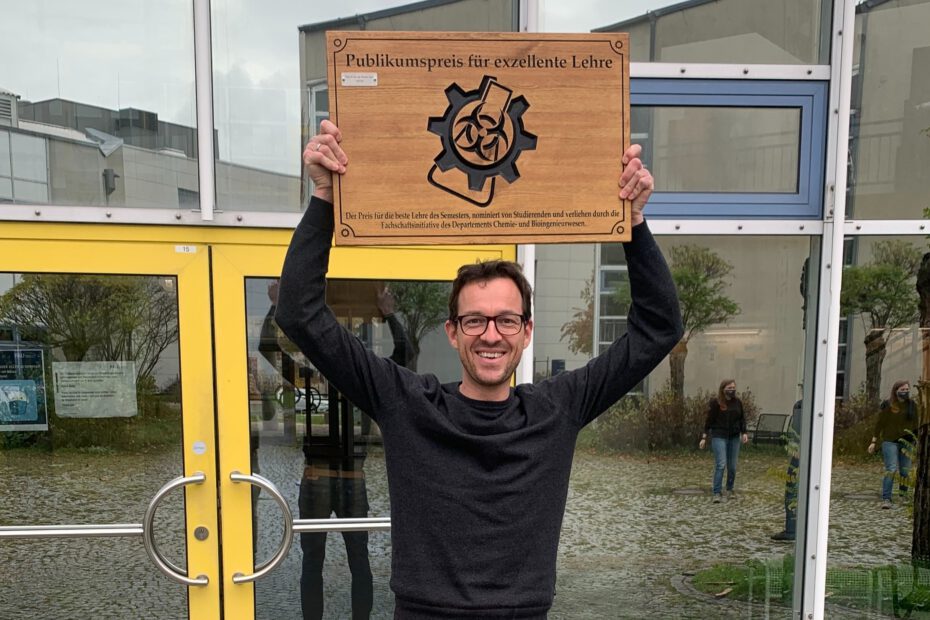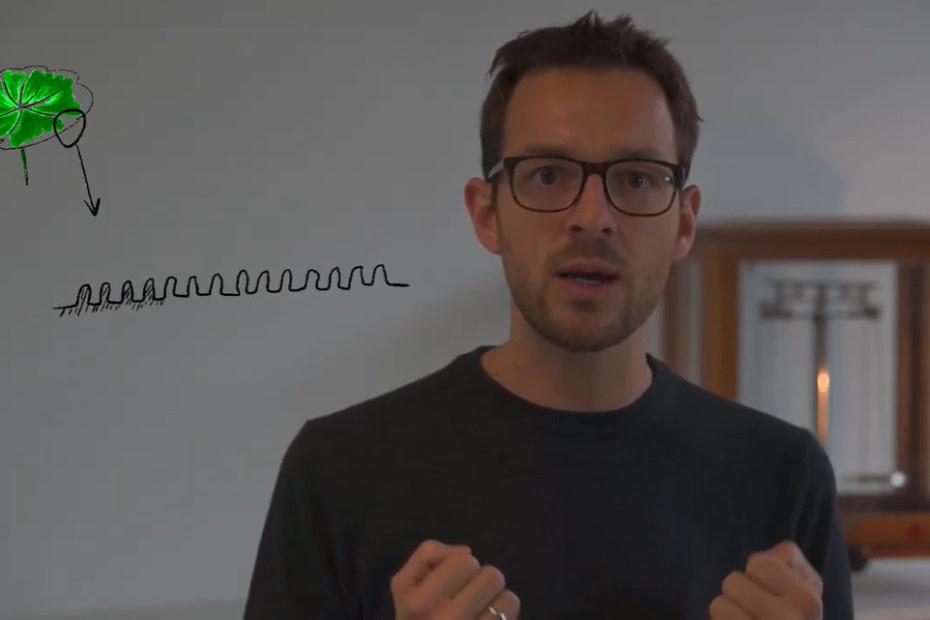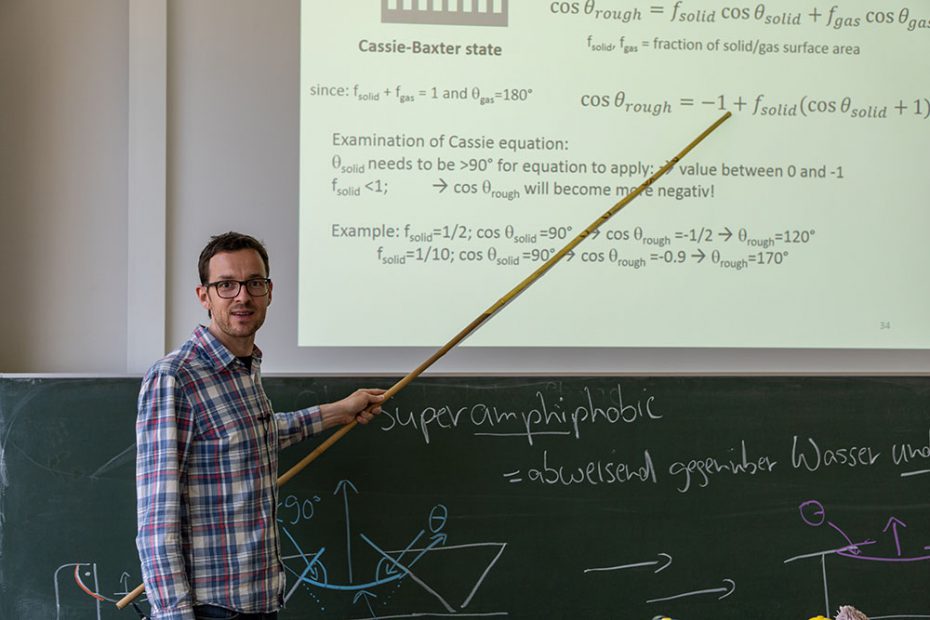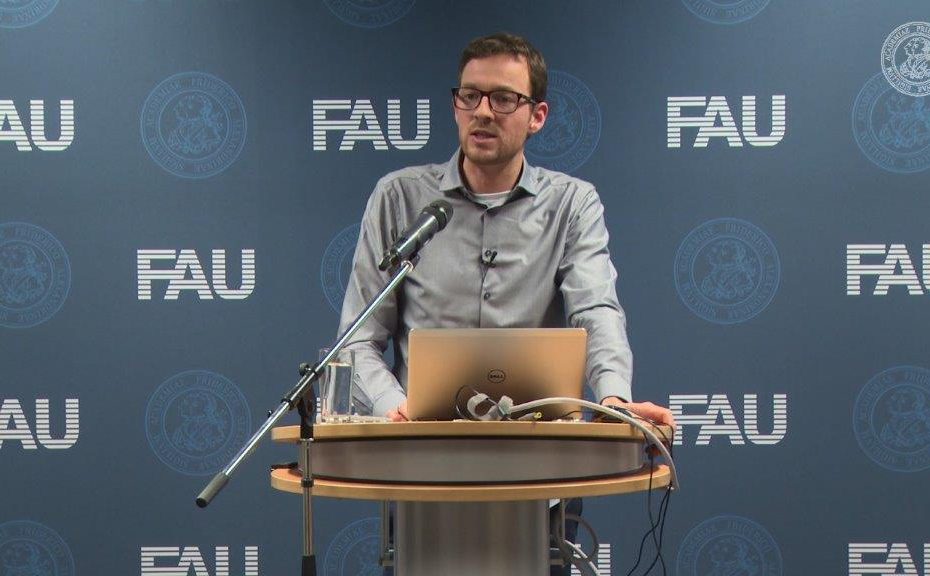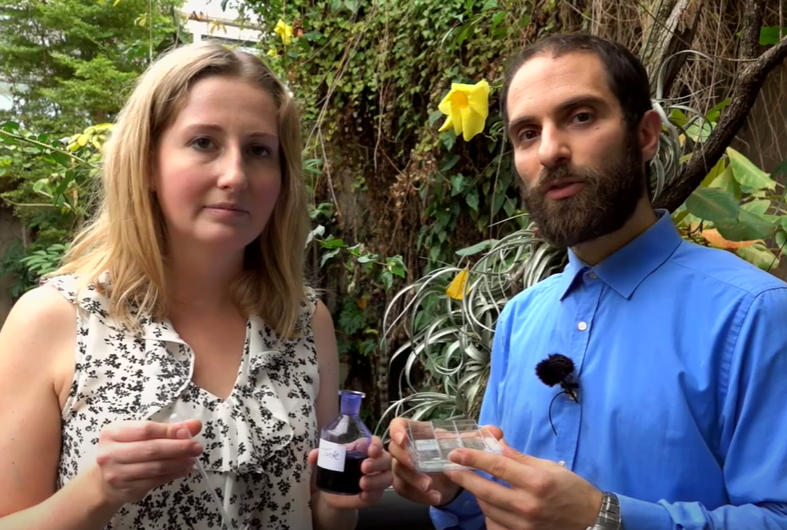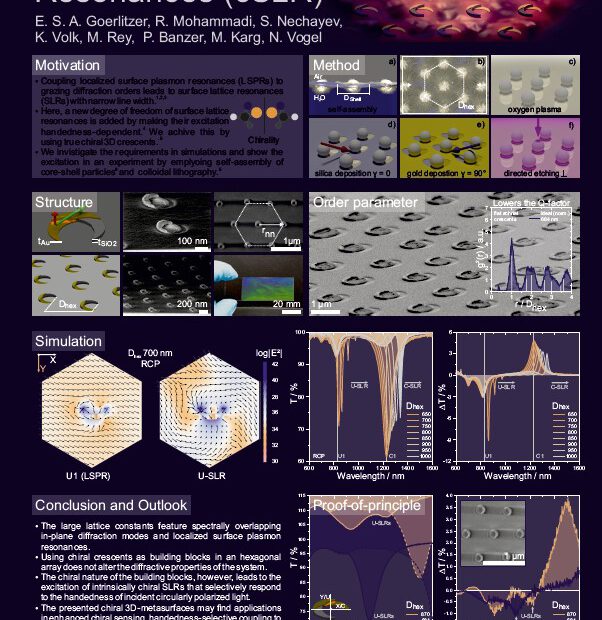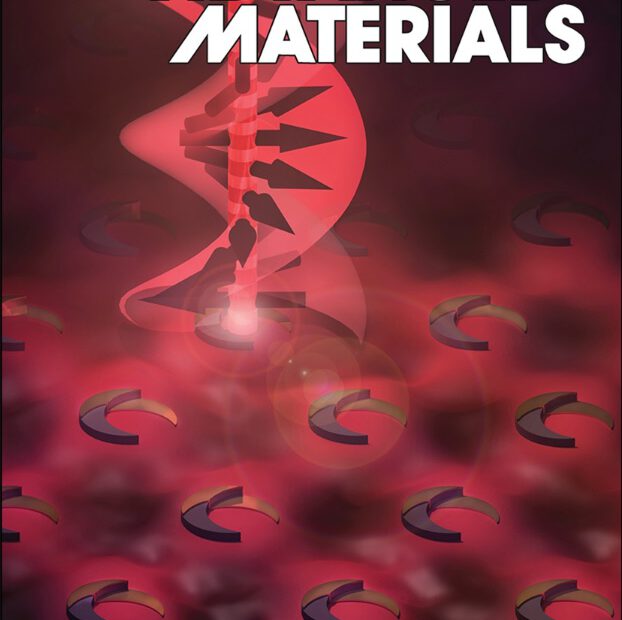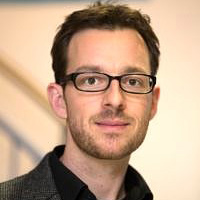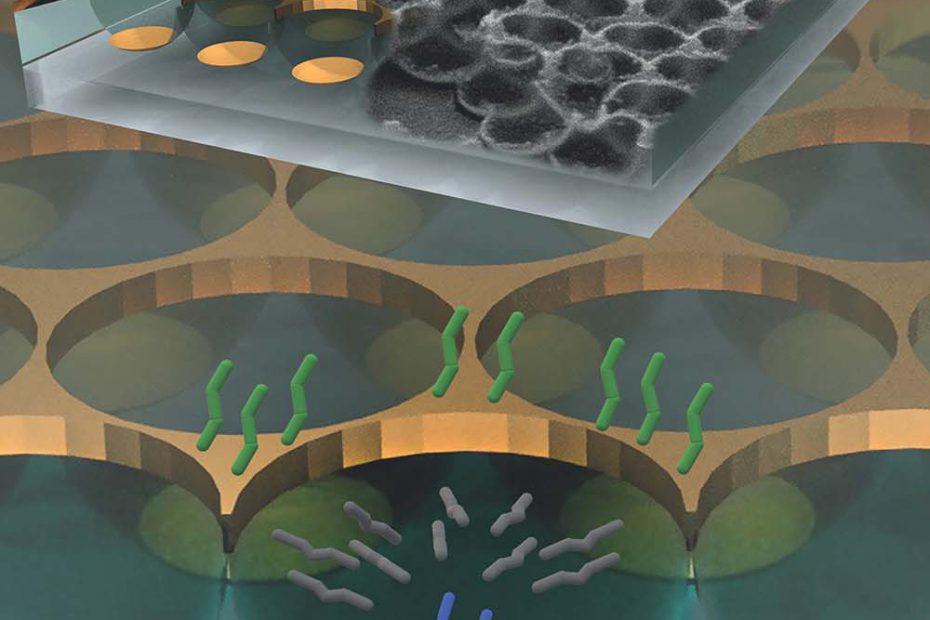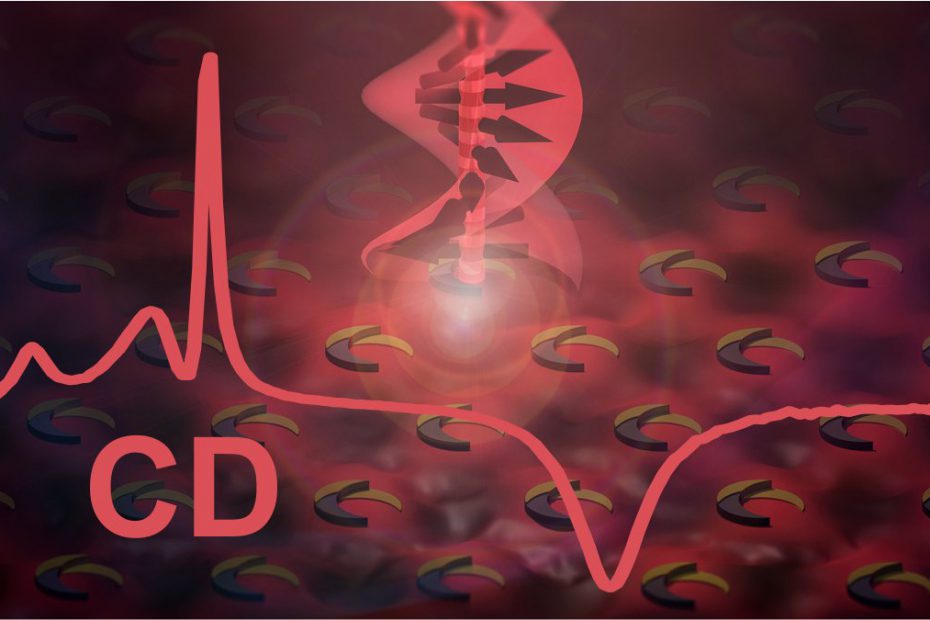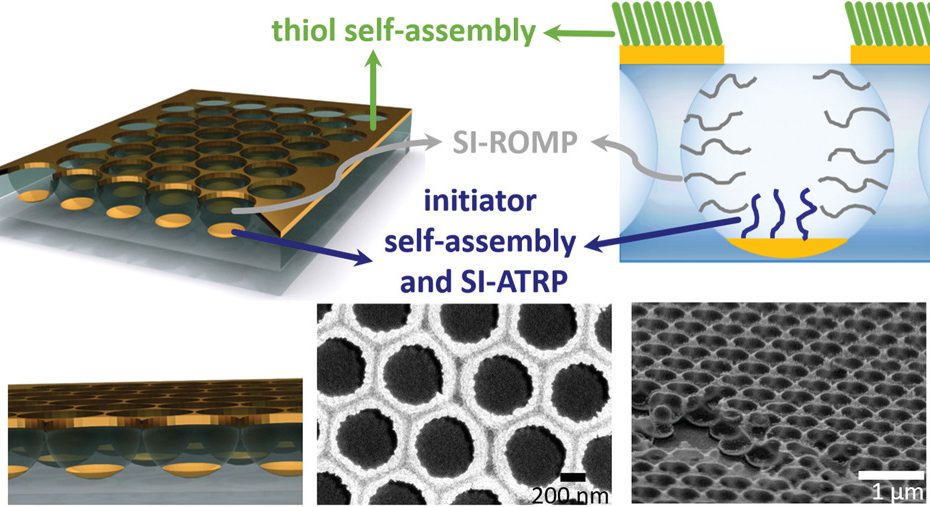The Vogel lab celebrated the new year 2021 with a digital zoom party. It was a fun evening with games and quizes and we hope that everyone enjoyed it. We are all impatiently looking forward to a real, in-person party in this year and hope that life will normalize eventually! Untill then, please all stay healthy!
We are pleased to announce that Eric was elected as the vice president of “SPIE student chapter” at Friedrich-Alexander University Erlangen-Nürnberg. SPIE, the international society for optics and photonics, was founded in 1955 to advance light-based technologies. Serving 255,000 constituents from 183 countries, the not-for-profit society advances emerging technologies through interdisciplinary information exchange, continuing education, publications, patent precedent, and career and professional growth. For more information please visit SPIE official website. Congratulations Eric!
Nicolas presents a seminar with the title “Tailoring structural coloration in self-assembled materials” as a part of the lecture series „Soft Interface Seminar“ organized by our Japanese colleagues Prof. Takahara-sensei, Prof. Yusa-sensei, Prof. Sakai-sensei and Prof. Fujii-sensei. The seminar will take place on Friday, December 18, 2020 at 17:30-19:00 (JST) (9.30 CET). The seminar is online via zoom. In order to register and attend the seminar, please follow this link.
2020 Virtual MRS session: Lessons from nature: from biology to bioinspired materials featuring members of the Aizenberg family. For nearly 50 years, researchers from around the world have converged in Boston for the preeminent materials event of the year—the MRS Fall Meeting. Due to COVID-19, this year’s meeting is being held virtually. Nicolas is one of the organizers of the symposium: Lessons from nature- from biology to bioinspired materials, featuring members of the Aizenberg family. For more details, visit the official page of the symposium please.
Our alumnus Tobias was featured in the last week’s edition of the well-known German economics magazine “Wirtschaftswoche” together with his brother. They have founded the company Atlas Aero GmbH in summer 2019 and are developing a personal hybrid airplane called Origin – a flying car so to say, also known as “electrical vertical take-off and landing” (eVTOL) aircraft. With a range of 1500km and a travel speed of 300kph while using only as much fuel as a smart car, they are first building a better alternative to small helicopters on… Read More »Tobis Startup
In the summer semester 2020, different departments of the university launched the „Publikumspreis für exzellente Lehre“ (Audience Award for Excellent Teaching). All students of the Department of Chemical and Biological engineering had the opportunity to nominate lecturers who have distinguished themselves through particularly good teaching and innovative solution to the digitalized semester. The lecture „Grenzflächen in der Verfahrenstechnik“ (“Interfaces in Process Engineering”) by Prof. Nicolas Vogel was selected as the top choice one from the 70 nominations that students submitted. The lecture was recorded and is available on Youtube, while… Read More »Publikumspreis für exzellente Lehre
Prof. Vogel and his team introduce research topics of the group. We see how biological functionalities such as the self-cleaning surfaces of plants or the shining colors of animals can be reproduced in the lab by controlling the structure of materials using self-assembly processes. https://www.youtube.com/watch?v=dkn_hyMjibw
Nicolas is presenting in the Particle-Based Materials Symposium 2020. The Particle-Based Material Symposium is a small workshop (50-100 participants) that has, in the last 4 years, brought together (mainly) young scientists and engineers from different communities that all share the goal of creating functionality in materials using particles. This year, a strong focus will be on applications of particle-based materials and on the extension of our Network over Europe and the World. Like many other scientific conferences, the PBM Symposium, which has been held annually at different research locations in… Read More »Nicolas presents in Particle-Based Materials Symposium 2020
Nicolas will present at the NICE-Conference on October 14, 2020. The NICE-Conferences are organized with the objective to share new developments in the field of bioinspired chemistry & materials as well as in Optics Photonics & Materials and to understand new challenges that are being faced in these fields of research. The NICE conference encompasses chemistry, biology and physics and gives a multi-disciplinary overview of biomimetic approaches to engineering new materials and systems. Please visit the NICE-Conference page for more details.
As part of our collaboration with BayBionik, Teresa and Salva explain how their repelling surfaces work. This collaborative project focuses on developing new enviromental friendly coatings which could be utilized to make different surfaces slippery. Such slippery surfaces have a vast range of applications from self-cleaning windows to anti-icing surfaces. https://www.youtube.com/watch?v=INbnyPxVEfg
Eric won a prize for his poster and flash presentation entitled ‘Chiral Surface Lattice Resonances’ in this year’s London Plasmonics Forum. The London Plasmonics Forum has been held annually at King’s College London since 2015, but in 2020 this was not possible due to COV-ID 19. The committee decided to move it online, and it went ahead on the scheduled date of 11 June. For more details visit the website of the event. Congratulations Eric! https://www.youtube.com/watch?v=KWe6JPImQbA&feature=youtu.be
J. Fischer*, N. Vogel*, R. Mohammadi, C.K. Weiss, K. Landfester and M. Kreiter Plasmon hybridization and strong near-field enhancements in opposing nanocrescent dimers with tunable resonances Nanoscale 2011, 3, 4788
ITN Network Limnoplast starts research on microplastics in freshwater systems The Vogel group participates as a partner in the “LimnoPlast” EU research and training project on the distribution of microplastics in European rivers and lakes. This “Innovative Training Network (ITN)”, which is funded for four years to the tune of almost €4.1 million by the EU out of its “Horizon 2020” programme in the framework of the Marie Skłodowska Curie measures. Microscopically small plastic waste, also known as microplastics, is a challenge for freshwater ecosystems around the globe. However, it… Read More »New Collaboration
